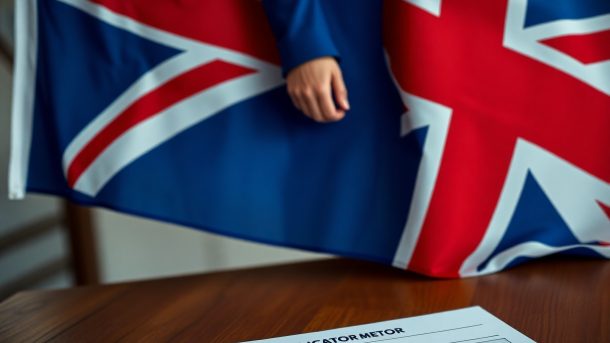Business dissolution can be a complex process, but understanding the steps you need to take can make it easier. If you are considering closing your business, it’s necessary to follow legal procedures to avoid future complications. This guide will outline the necessary measures to ensure that you close your business appropriately, from notifying stakeholders to settling outstanding debts. For detailed insights, check out A guide to closing a limited company.
Key Takeaways:
- Choose the right method: Depending on the business structure, you can close a business through liquidation, striking off, or insolvency.
- Notify Stakeholders: Inform employees, creditors, and clients about the closure, ensuring all legal obligations are met.
- Handle financial matters: Settle any outstanding debts, dispose of assets, and file final accounts and tax returns with the relevant authorities.
Understanding Business Closure
Your decision to close a business involves careful consideration and planning. Understanding the steps and legal requirements will help you navigate this complex process while minimizing potential complications. Closure can stem from various reasons, and knowing how to manage this transition smoothly is vital for both your peace of mind and legal compliance.
Types of Business Entities
Your business structure significantly impacts the closure process. Each entity type has specific implications regarding liability, taxation, and requirements. Here are some common types:
- Limited Company
- Partnership
- Sole Trader
- Franchise
- Limited Liability Partnership (LLP)
After understanding your business entity type, you can better strategize your closure process.
| Business Type | Closure Method |
| Limited Company | Members’ voluntary liquidation |
| Partnership | Partnership dissolution |
| Sole Trader | Self-assessment tax return |
| Franchise | Franchise agreement terms |
Reasons for Closing a Business
Types of reasons for closing a business can vary widely and often shape your approach to the situation. Economic pressures, personal circumstances, or shifting market demands may lead you to this decision.
To understand why many entrepreneurs choose to close their businesses, consider factors such as financial instability, changes in consumer behavior, or even personal reasons like retirement or health issues. Identifying these motivations can assist you in transitioning smoothly and planning for next steps.

Preparing for Closure
It is crucial to take a systematic approach when preparing for the closure of your business. This involves assessing your current situation, understanding your legal obligations, and developing a clear plan. By establishing a timeline and identifying key tasks, you can ensure a smoother closure process while minimizing potential complications. Moreover, addressing both operational and financial aspects will help facilitate the transition for you and your stakeholders.
Financial Considerations
Preparing to close your business requires a thorough evaluation of your financial standing. You need to settle any outstanding debts, collect receivables, and determine how to handle your assets. Additionally, it is important to plan for potential tax implications arising from the closure, as this will impact your financial outcome. Consulting with an accountant can provide you with valuable insights during this process.
Informing Stakeholders
To ensure a smooth closure, it is vital to communicate effectively with your stakeholders, including employees, suppliers, and customers. Keeping them informed about your plans will help build trust and facilitate a collaborative exit strategy.
Consequently, sending out clear announcements and updates to your stakeholders will enable them to prepare for the business closure. You should consider holding meetings or personal conversations with key individuals to discuss the implications for them directly. It is important to provide guidance about their next steps and address any concerns they may have. Doing so fosters positive relationships and can mitigate any negative impacts from the closure on your reputation.

Legal Procedures for Closure
For any business owner in the UK, understanding the legal procedures necessary for closing your business is paramount. This process involves a series of steps tailored to your business structure, ensuring compliance with UK laws and regulations. It’s important to consider all aspects, including settling debts, informing stakeholders, and fulfilling legal obligations to minimize potential liabilities during the closure.
Steps for Different Business Structures
Across various business structures, such as sole traders, partnerships, and limited companies, the steps for closure differ significantly. As a sole trader, you will simply inform HMRC and settle your tax requirements. In contrast, if you operate a limited company, you must follow a formal process like voluntary liquidation, ensuring all creditors are paid before dissolution.
Important Documentation
About the documentation needed for your business closure, it varies based on your business type and structure. You’ll typically need to prepare and submit specific forms, such as a final tax return or a company resolution, to effectively complete the process.
But it’s vital to gather all relevant documentation and retain records of any communications with creditors, employees, and any necessary legal notices. This not only protects you legally but also serves to confirm that you have followed the correct procedures. Keeping thorough records assists in the smooth traversal through the winding-down process, ensuring all areas are addressed properly.
Settling Debts and Liabilities
Not addressing your business’s debts and liabilities can lead to legal complications and financial distress. Before closing your business, it is imperative to settle any outstanding debts to ensure an orderly wind-down process. This may involve negotiating with creditors or arranging for payment plans to clear any obligations your business holds. By taking these steps, you protect your personal financial standing and maintain goodwill with your creditors.
Paying Creditors
Settling your debts with creditors is an crucial step in closing your business. Prioritize communication with all creditors to establish a clear understanding of your financial commitments. You may negotiate reduced payments or extended deadlines, but ensure that any agreements are documented to avoid future disputes.
Handling Employee Obligations
Liabilities to employees are significant when closing your business, including unpaid wages, redundancy pay, and outstanding holiday pay. You’ll need to ensure that all employee rights are met under the law, which involves giving appropriate notice and fulfilling any severance agreements. Address these obligations conscientiously, as failing to do so can lead to disputes and potential legal repercussions.
Considering the impact of your business closure on employees is important. You must provide written notice of termination, detailing their rights and any redundancy procedures being followed. This may include offering support through job placements or severance packages. Being fair and transparent with your employees during this process can mitigate potential claims against you and help maintain your professional reputation.
Tax Implications
Now that you’re considering closing your business, it’s important to understand the tax implications involved. You need to settle any outstanding debts, including taxes, before completing the closure process. For detailed guidance, refer to the Closing A Limited Company | Free Guide.
Final Tax Returns
With the business closure, you must submit final tax returns to HM Revenue and Customs (HMRC). This includes reporting any income or profits made up until the closure date. Make sure all taxes are settled before filing to avoid complications.
VAT and Other Taxes
With VAT registered businesses, you must inform HMRC about the closure and file a final VAT return. This return will account for any goods held in stock and those sold off before closing. Any outstanding VAT liabilities must also be settled.
Plus, if you’re deregistering for VAT, you should make sure that you do it correctly to avoid penalties. Ensure that your records are up to date, and submit a final VAT return. It’s also recommended to review any other tax obligations, such as Corporation Tax or payroll taxes, to ensure you’ve fulfilled all requirements during this transition process.
Liquidation Options
Many business owners in the UK face the difficult decision of liquidation when it is no longer viable to continue trading. Understanding your options is important to ensure you comply with legal requirements and minimize financial repercussions. There are primarily two types of liquidation: voluntary liquidation and compulsory liquidation, each with its own process and implications for you and your business.
Voluntary Liquidation
Below is an overview of voluntary liquidation, which occurs when you choose to wind up your company, usually due to insolvency or the desire to cease trading. This process allows you to take control of the situation and appoint a licensed insolvency practitioner to manage the liquidation of your company’s assets, ensuring creditors are paid in an orderly manner.
Compulsory Liquidation
Around 40% of all liquidations in the UK are compulsory, initiated by a court order, often following a petition from creditors seeking repayment of debts. This path may arise when your company cannot meet its financial obligations, forcing you to relinquish control to an official liquidator appointed by the court.
In addition to removing decision-making power from you, compulsory liquidation can severely impact your credit rating and future business prospects. It is vital to know that this process may also lead to the investigation of your company’s financial dealings. As such, it’s important to seek professional advice to navigate compulsory liquidation effectively and understand your rights and responsibilities during this challenging time.
Summing up
As a reminder, closing your business legally in the UK requires careful consideration of several steps, including notifying stakeholders, settling debts, and following the correct statutory procedures. You should ensure that assets are properly handled and any remaining tax obligations are met. If your business is a limited company, you will need to go through a formal dissolution or liquidation process. By following these guidelines, you can ensure that you close your business efficiently and within the law, protecting your interests and maintaining your professional reputation.
Q: What are the first steps to take when deciding to close my business in the UK?
A: The first steps involve assessing the type of business structure you have (limited company, sole trader, partnership, etc). Next, notify your employees and inform them about the closure. It is also important to settle any outstanding debts and obligations. You should then contact HM Revenue and Customs (HMRC) to handle tax liabilities, and review any leases or contracts that may need to be terminated. Finally, start preparing necessary paperwork for the specific closure process relevant to your business structure.
Q: How do I formally close a limited company in the UK?
A: To close a limited company, you can either apply for a voluntary strike-off (if the company has ceased trading and has no outstanding debts) or go through a formal liquidation process (if the company has debts). If opting for a strike-off, you must complete a DS01 form, pay the fee, and inform relevant parties, including creditors. If entering liquidation, you will need to appoint a licensed insolvency practitioner to handle the process. Make sure to also inform HMRC, as they require certain filings to be updated or completed before closure.
Q: What happens to the business debts when I close my business?
A: When closing a business, all debts should be addressed prior to closure. If the business is a sole trader or partnership, personal liability may apply which means you could be personally responsible for the debts. For limited companies, you generally will not be personally liable for company debts unless you have given personal guarantees or the company is found to have been trading fraudulently. It is advisable to seek legal advice on negotiating with creditors or considering options like voluntary arrangements if debts are significant.
Q: Do I need to inform customers and suppliers about the closure?
A: Yes, it is advisable to inform your customers and suppliers about the closure of your business. Providing notice allows customers to collect any outstanding products or services and gives suppliers time to finalize transactions. Clear communication helps maintain relationships and could prevent misunderstandings. A formal announcement can be made through emails, letters or social media notifications, emphasizing your gratitude for their support.
Q: What are the tax implications of closing my business in the UK?
A: There are several tax implications when closing a business. You must submit any outstanding tax returns to HMRC, and you may need to pay any outstanding corporation tax or income tax. If you are a sole trader, your final self-assessment return will need to be filed. Additionally, if you sell any assets as part of the closure, you may need to consider capital gains tax. Consulting with a tax advisor can help clarify your obligations and ensure all tax matters are properly addressed during the closure process.










Recent Comments